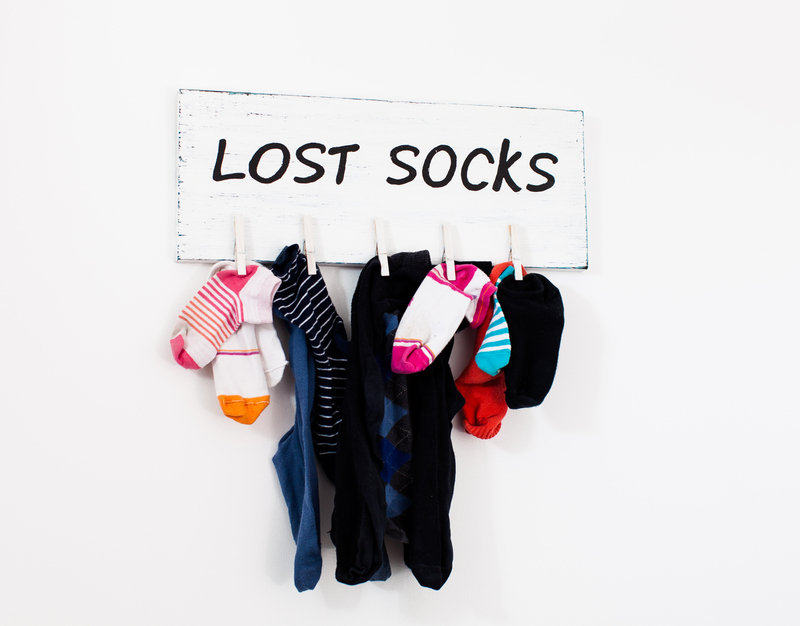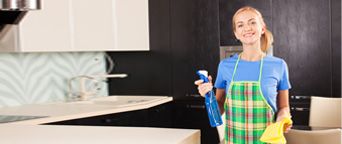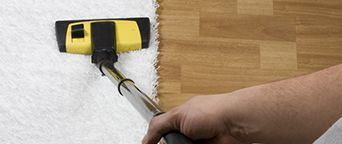Discover Top Strategies for Efficient Window Cleaning
Posted on 30/08/2025
Discover Top Strategies for Efficient Window Cleaning
If you've ever gazed through streaky panes or struggled with stubborn grime, you know that window cleaning can be a real challenge. Whether you're tidying up your home or elevating your business's curb appeal, efficient window cleaning is essential for a sparkling, pristine appearance. In this comprehensive article, we'll delve into innovative techniques, expert tips, and professional secrets so you can master the art of hassle-free window washing.

Why Efficient Window Cleaning Matters
For many homeowners and business professionals, gleaming windows are about more than aesthetics. Clean windows allow natural light to flood your space, enhancing productivity, mood, and even your property value. However, getting those spotless results requires more than elbow grease--it demands the right knowledge and methods.
- Enhanced appearance: Streak-free windows let your building shine.
- Longevity: Removing tough grime can prolong the life of your windows.
- Health benefits: Dust, pollen, and spores easily collect on glass and can impact indoor air quality.
- Energy efficiency: Clean windows maximize sunlight, potentially reducing power bills.
Essential Tools for Effective Window Cleaning
Before you start, assemble a toolkit that includes these must-have items for efficient window washing:
- Soft microfiber cloths: Absorbent and gentle, these won't scratch glass.
- Squeegee: Provides a smooth, streak-free finish when used correctly.
- Bucket: Ideal for mixing cleaning solutions and rinsing tools.
- Extension pole: Reaches tall windows safely and efficiently.
- Window scrubber/mop: Loosens dirt before squeegeeing.
- Eco-friendly window cleaning solution: Commercial or homemade formulas both work well.
- Razor blade/Window scraper: Use only for stubborn spots, never on tempered or tinted glass.
- Ladder (if necessary): Ensure stability and safety when reaching high windows.
Pro-Tip:
Always check product compatibility: Avoid harsh chemicals on tinted, coated, or older glass to prevent damage.
Top 10 Strategies for Efficient Window Cleaning
Let's explore the expert-recommended approaches that guarantee spotlessly clean windows every time.
1. Choose the Perfect Timing
Timing is everything in window cleaning efficiency. Clean your windows on an overcast day or during early morning/evening hours. Direct sunlight causes cleaning solutions to dry too quickly, often resulting in streaks or water spots.
2. Start with the Frames
Before you clean the glass, always wipe down the window frames. This prevents dust and debris from dripping onto freshly cleaned panes later in the process. Use a damp cloth or a vacuum with a brush attachment for this step.
3. Dust and Dry Brush First
We recommend dry brushing or dusting window sills and tracks before introducing any liquid. This efficient window cleaning practice prevents mud from forming when dust mixes with your cleaning solution.
4. Invest in a Quality Squeegee
- A squeegee is every professional's secret weapon for streak-free glass.
- For best results, use a squeegee with a sharp, soft rubber blade, and wipe the blade with a lint-free cloth between each pass.
- Squeegee in a reverse 'S' pattern from top to bottom to direct the water off the glass efficiently.
5. Master the Proper Technique
For efficient window cleaning, apply your chosen solution with a scrubber, sponge, or mop. Work from top to bottom in overlapping strokes to cover all areas, and avoid missed spots.
Pro-Tip: Use vertical strokes on one side of the window and horizontal strokes on the other. This trick helps you spot and fix streaks faster.
6. Don't Forget the Screens
Dirty screens can sabotage even the best window cleaning. Remove screens, wash gently with soapy water, rinse well, and allow them to dry fully before reinstalling. Regularly cleaning screens ensures both airflow and clear views.
7. Use Homemade Cleaning Solutions
You don't need harsh chemicals for effective window washing. Mix your own solution with ingredients like vinegar, dish soap, and water--safe, affordable, and eco-friendly.
- Mix 2 cups of water, 1/4 cup white vinegar, and a squirt of dish soap in a spray bottle.
- Shake gently before spraying on glass surfaces.
8. Tackle Stubborn Stains and Hard Water Spots
For mineral deposits or tough stains, make a paste from baking soda and water and apply gently with a soft cloth. Rinse thoroughly. Razor blades and scrapers can be used with caution--but only on uncoated glass--to lift sticky residue.
9. Dry with Microfiber Cloths
After squeegeeing, gently buff with a dry microfiber cloth to wipe away any remaining droplets. Avoid paper towels, which can leave behind lint or streaks.
10. Regular Maintenance is Key
The best strategy for efficient window cleaning is consistency. Clean high-traffic or exterior windows every few months to prevent buildup and prolong their clarity. Track cleaning dates and stick to a routine.
Advanced Tips from Window Cleaning Professionals
- Work in sections: Clean large windows in manageable areas to keep cleaning solution from drying too quickly.
- Change your water often: Dirty water just spreads grime, so swap it out regularly.
- Use two buckets: One for clean water, one for dirty. This minimizes streaks and cross-contamination.
- Check the forecast: Avoid rainy or windy days, which undo your hard work in minutes.
Safety First: Essential Precautions
If you're cleaning multi-story or hard-to-reach windows:
- Make sure ladders are stable and on solid ground.
- Use extension poles instead of risking a fall.
- Wear non-slip shoes and secure any tools to avoid dropping them.
Eco-Friendly and Streak-Free: Window Cleaning Innovations
Sustainability is increasingly important in modern housekeeping. Here's how to keep your glass gleaming without harming the environment:
Stick with Natural Solutions
- Vinegar: Cuts through residue and kills bacteria without leaving streaks.
- Lemon juice: Offers mild acidity and a fresh scent.
- Baking soda: Gently scrubs away tougher spots without abrasion.
Microfiber Reigns Supreme
Microfiber cloths attract dust and trap dirt within their fibers, significantly reducing the amount of cleaning solution required. They also dry quickly and can be washed and reused hundreds of times.
Advanced Equipment: The Water Fed Pole System
Want ultimate efficiency? Professional window cleaners increasingly use telescopic water-fed poles with filtration systems. These systems provide purified water directly to the glass, leaving no mineral residue or streaking--perfect for multi-story buildings.
Addressing Common Window Cleaning Challenges
How Do I Prevent Streaks When Cleaning Windows?
Streaks happen when cleaning solution dries too quickly or residues are left behind. Use the right amount of solution, avoid direct sunlight, and use a squeegee with strong, even pressure. Dry the edges and corners with a clean, lint-free microfiber.
What's the Best Way to Remove Hard Water Stains?
For tough water spots, spray undiluted white vinegar onto the stain, let it sit for a few minutes, then gently scrub with a non-abrasive cloth. Rinse thoroughly and repeat if necessary.
How Often Should I Clean My Windows?
- Residential homes: once every 3-6 months
- Commercial properties or high-traffic areas: every 1-2 months
- Exposed homes (near the sea, highways, or in rainy climates): more frequently as needed
Quick Reference: Tools and Solutions Checklist
- Squeegee - for streak-free drying
- Microfiber cloth - for polishing and touch-ups
- Extension pole - for hard-to-reach windows
- Gentle cleaning solution - preferably natural or diluted dish soap and vinegar
- Soft-bristle brush - for initial dusting and scrubbing
- Spray bottle - for easy application of cleaning solutions

Frequently Asked Questions About Efficient Window Cleaning
1. Can I use newspaper for window cleaning?
While old newspapers were traditionally used, modern ink and glossier papers may leave smudges. Microfiber cloths or squeegees are more effective and eco-friendly choices for efficient window cleaning.
2. Is it safe to use ammonia or bleach on windows?
Strong chemicals like ammonia or bleach are rarely necessary and may damage window frames, seals, or finishes. Opt for diluted, gentle solutions for best results and longer window life.
3. How can I make my own window cleaner?
A popular homemade window cleaning solution recipe is:
- 2 cups water
- 1/4 cup distilled vinegar
- 1/2 teaspoon mild dish soap
Conclusion: Achieve Gleaming Results with Proper Window Cleaning Strategies
Clean, clear windows are the hallmark of a well-maintained home or workplace. By following these top strategies for efficient window cleaning--from assembling the right tools to perfecting your technique and embracing eco-friendly habits--you can enjoy a streak-free, pristine view year-round.
Don't forget: Consistency is just as important as technique. Commit to regular care and make window cleaning a rewarding part of your home or office maintenance routine.
Ready to let the sunlight in? Start applying these expert window cleaning strategies for a brighter, healthier, and more inviting space today!







